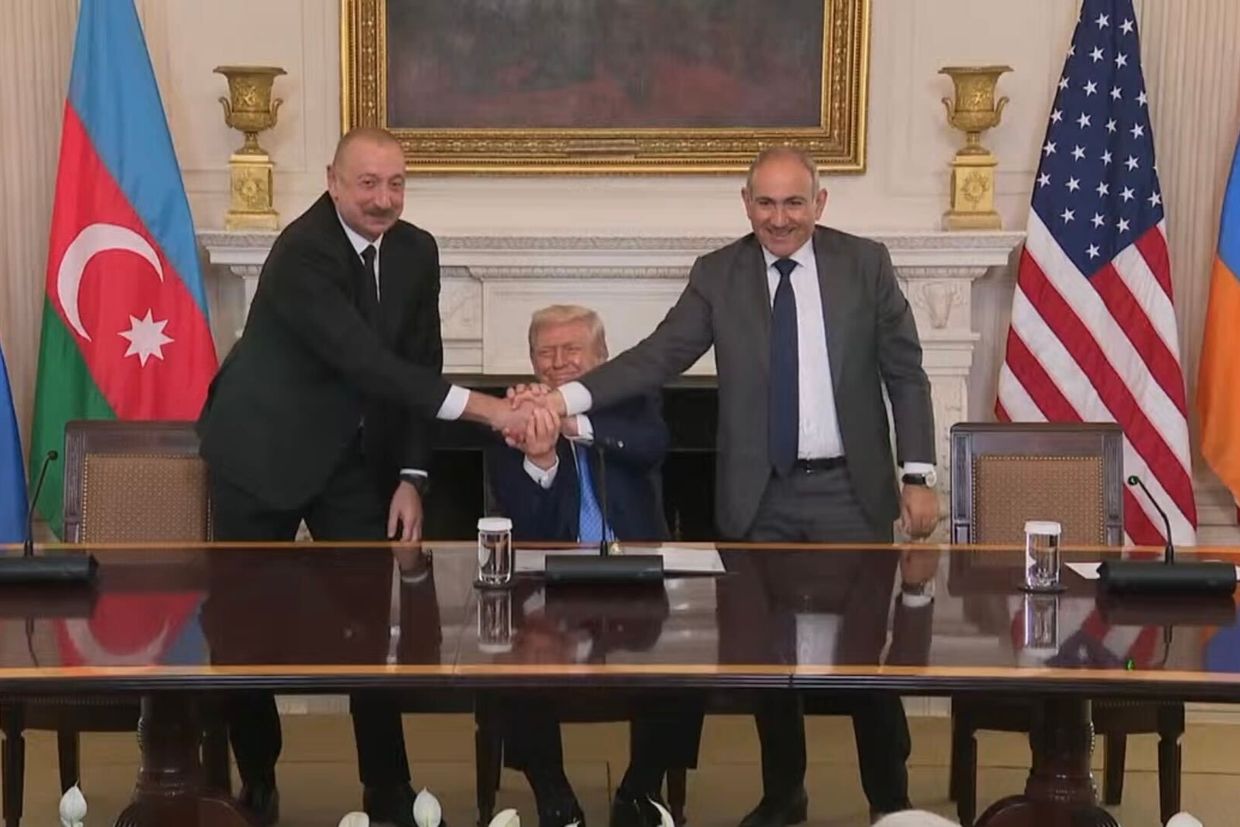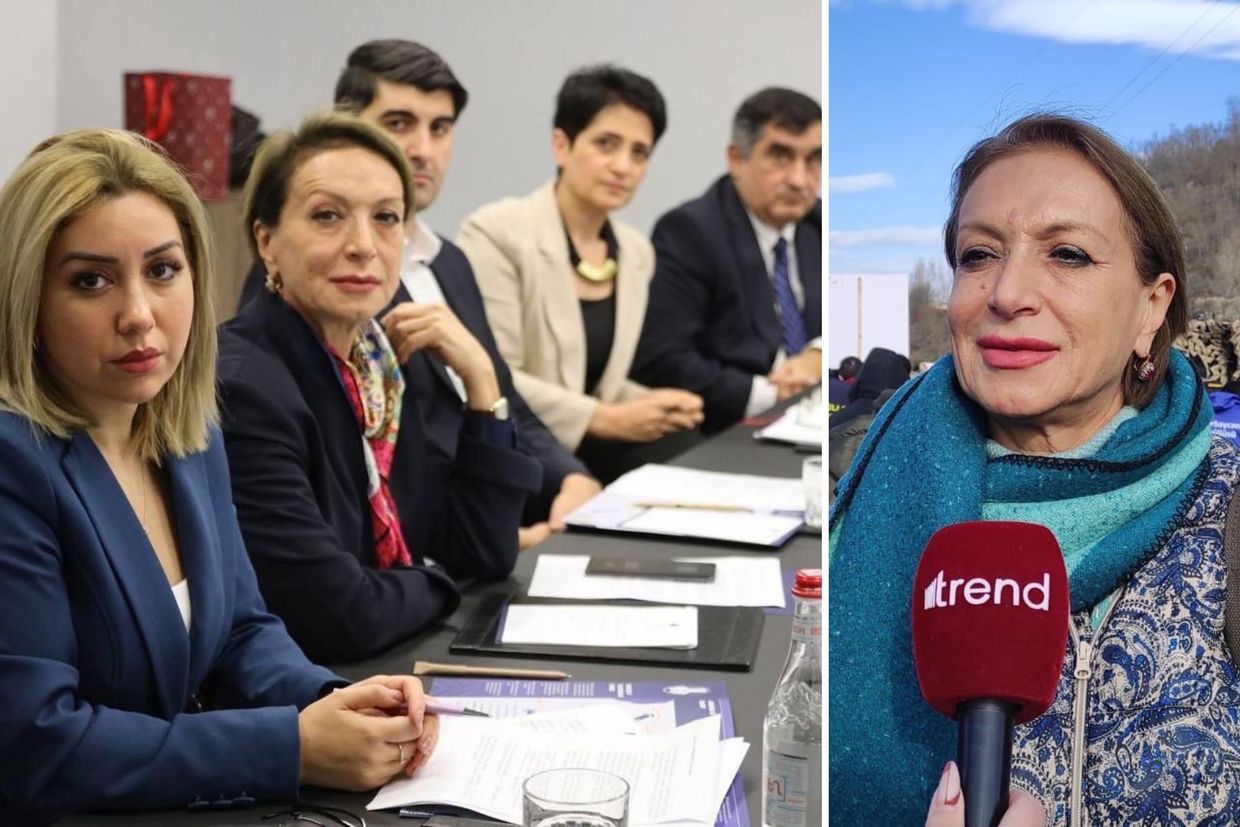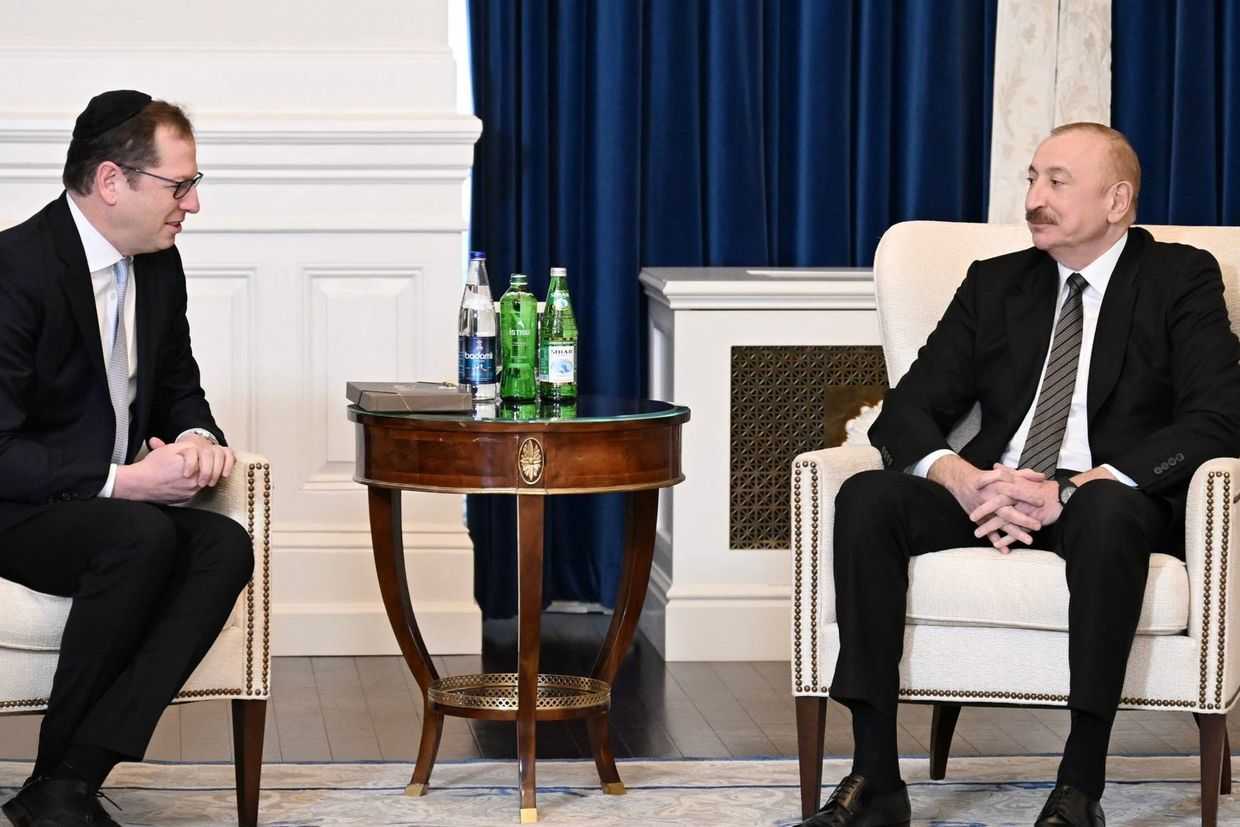
Armenian civil society representatives who visited Baku from 21–22 November were denied a request to meet with Armenian prisoners held there.
The meeting between Armenian and Azerbaijani civil society representatives took place within the framework of the Bridge for Peace initiative. It was the second meeting within this initiative, the first having taken place the month prior in Yerevan.
Naira Sultanyan, a member of the Armenian delegation, told reporters during a press conference on 24 November that they had tried to raise the issue ‘diplomatically, so that trust and mutual understanding could be built between the parties’.
‘Unfortunately, we did not receive a clear and specific answer regarding the number and names of those detained’, she said.
Among the 23 Armenians in Azerbaijani custody are eight former political and military leaders from Nagorno-Karabakh who have been on trial since January. Azerbaijani prosecutors have sought life sentences for five of them, and 20-year terms for two others.

During the same press conference, Sultanyan highlighted that it was a new situation for them in terms of being able to have direct dialogue with the Azerbaijani side, especially with presidential aide, Hikmat Hajiyev.
Another member of the Armenian delegation, Areg Kochinyan, told reporters, as cited by the Azerbaijani pro-government media outlet Qafqazinfo, that Hajiyev had asked them to convey several messages to Armenian society. Foremost among these was Hajiyev’s emphasis that ‘for Baku, the conflict is over’.
‘Hajiyev told us that Azerbaijanis want to move from the current “non-military” situation to peace, to establish a comprehensive and lasting peace with Armenia’, Kochinyan said.
He noted that Hajiyev had also reiterated that Azerbaijan has no territorial claims against Armenia.
Separately, Rami Isgandarli, chair of the National NGO Forum and one of the members of the Azerbaijani delegation, told the pro-government media outlet APA that both sides reached an agreement at the meeting to intensify interaction in the media.
‘In parallel, direct contact will be established between experts working in various fields. Overall, a decision was made to inform civil society, develop mechanisms for its involvement in this process, and conduct mutual visits within the framework of the Peace Bridge Initiative’, Isgandarli said.
It was not reported which specific experts and in which areas the parties had agreed upon.
Armenian and Azerbaijani civil society figures began visiting each other’s countries after the August summit in Washington between Azerbaijani President Ilham Aliyev, Armenian Prime Minister Nikol Pashinyan, and US President Donald Trump. During the summit, the three leaders initialed the Armenia–Azerbaijan peace treaty and agreed to the establishment of the Trump Route, which would connect Azerbaijan to Nakhchivan and Turkey through Armenian territory.
Azerbaijani historian and human rights activist Arif Yunus, who lives in the Netherlands, told RFE/RL that such kind of meetings are only imitations and that independent civil society does not exist in Azerbaijan.
‘The order came from above, and that’s why [civil society] is meeting with representatives of Armenian civil society. If tomorrow a decision is made from above to insult Armenians, they will also follow that rule. Civil society, having received the order, has taken up this process, and there’s no talk of a peace process’, he said.
Yunus additionally argued that the authorities needed to be more transparent with the meetings.
Criticism arose after the first meeting in October when it was revealed that one of the attendees from the Azerbaijani side was Dilara Efendiyeva — a prominent ‘eco-activist’ who participated in the blockade of Nagorno-Karabakh in 2022–2023 and is closely linked with the government.
She was not on the official delegation list during the recent Baku meeting.

This article was translated into Russian and republished by our partner SOVA.










